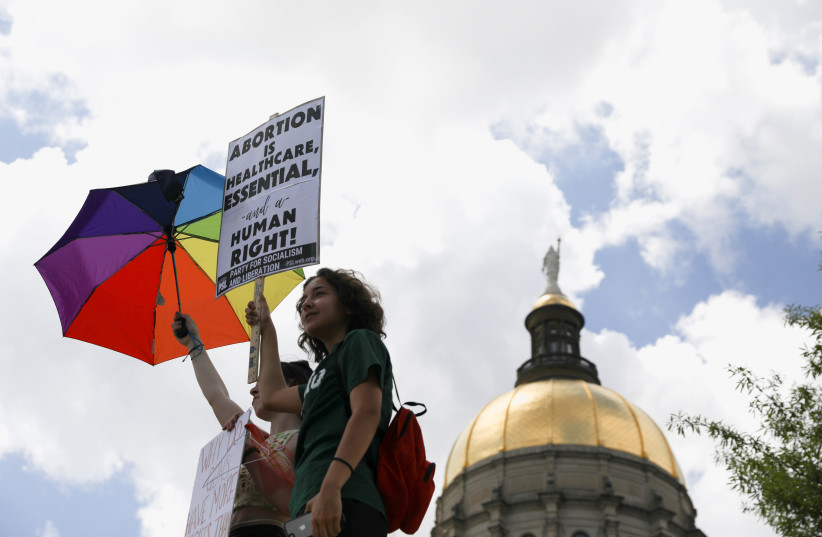Voters in five states considered abortion-related ballot measures on Tuesday, initiatives that have taken on new urgency since the US Supreme Court in June overturned the Roe v. Wade decision that had legalized abortion nationwide.
In August, voters in conservative Kansas defeated a ballot measure aimed at eliminating abortion rights from the state's constitution. Here is a look at Tuesday's votes.
Vermont
Voters decided to enshrine abortion rights in Vermont's state constitution, Edison Research projected.
As required by state law, the ballot measure had already been approved twice by the Democratic-controlled legislature.

The measure was the culmination of actions to shore up abortion rights, including a new state reproductive rights law, that began in 2019 after former President Donald Trump's appointment in the two prior years of Justices Neil Gorsuch and Brett Kavanaugh to the US Supreme Court cemented its conservative majority.
California
Voters in California, the most populous US state, passed a proposal to enshrine the right to an abortion in its constitution by a wide margin, Edison Research projected.
The ballot initiative capped a years-long effort by reproductive rights advocates in the left-leaning state to protect abortion rights, including recent funding from the legislature to help people who live in states where the procedure has been limited or banned seek care in California.
Michigan
Results were still being tabulated in the battleground state of Michigan, where a proposed constitutional amendment would declare abortion as a right.
Reproductive rights groups have said such protections would ensure future abortion access in the state, which has a Republican-controlled legislature and a Democratic governor up for re-election.
Conservative Republicans in the state had sought to allow a 1931 abortion ban to be enforced once Roe v. Wade was overturned. But a judge ruled on Sept. 7 that the ban, which made no exceptions for rape or incest, violated the state's constitution and could not be enforced.
Kentucky
A measure in conservative Kentucky would establish that the state constitution does not protect or recognize a right to an abortion.
With 72% of precincts reporting, voters were nearly evenly split on the ballot question.
Montana
In Montana, voters were asked about a so-called "born alive" law, which would require medical care to be provided to infants born alive after a failed abortion.
Based on the belief among some anti-abortion activists that babies have been left to die after abortion, labor or "extraction," such as a cesarean section, the measure affirms that all infants born alive are considered legal persons in the state.
Doctors who fail to care for such living infants would be fined up to $50,000 and face imprisonment of up to 20 years. The limited data on these types of incidents suggests they are rare and likely to involve fetuses with severe conditions that make them unlikely to survive.
Other conservative states have enacted similar legislation in recent years. Results were not yet in for this race.
